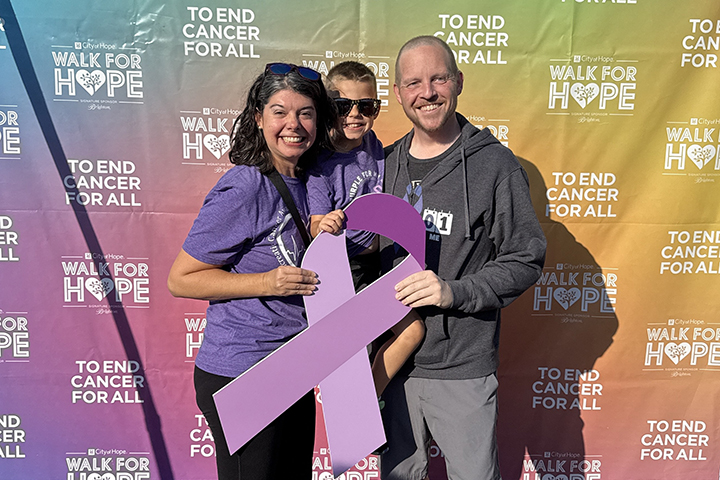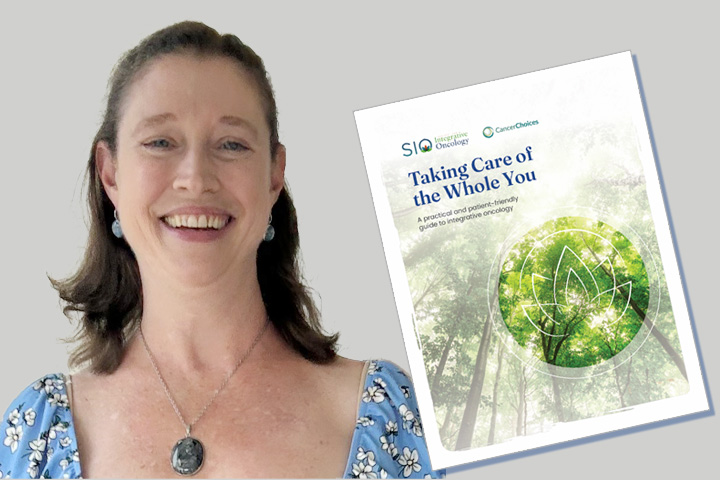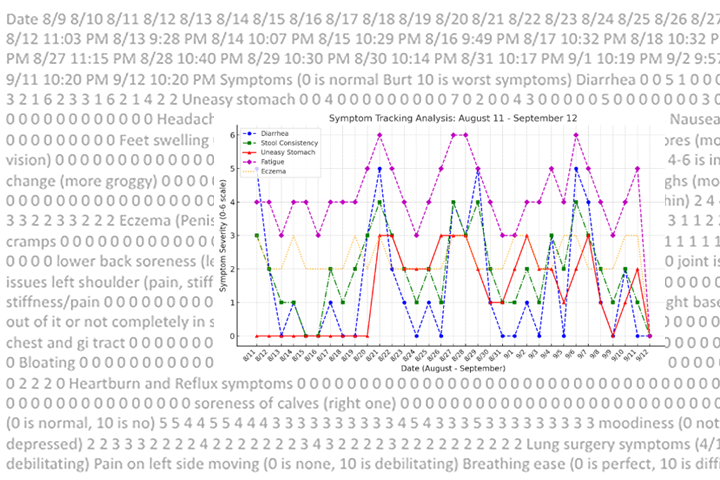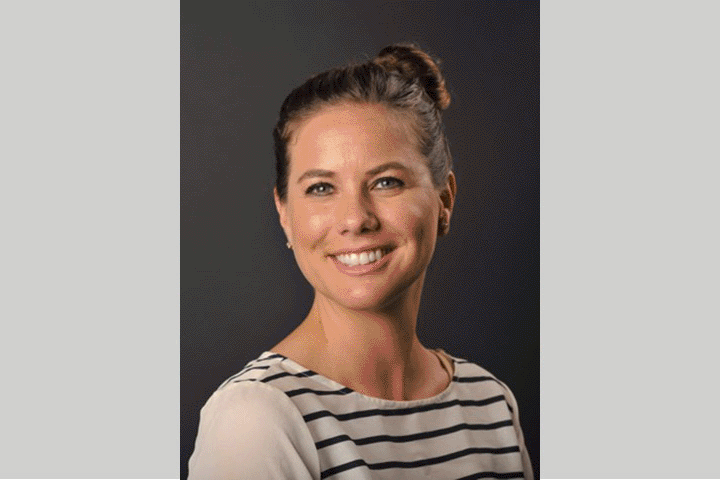After a Pancreatic Cancer Diagnosis, Know Your Benefits and Rights

You may not know this but there are many government and private programs and benefits available for pancreatic cancer patients.
Unfortunately, people aren’t aware of their options. But when you are diagnosed with pancreatic cancer, it’s important to know your legal rights, and how to access available benefits.
“The Americans with Disabilities Act is celebrating its 30th anniversary,” says Lisa M. Brauner, an employment law partner and head of the Employment Law practice at Perlman & Perlman LLP in New York City. “That law, which was amended by the ADA Amendments Act of 2008, requires employers with 15 or more employees to reasonably accommodate employees with disabilities, including pancreatic cancer patients.” In fact, the benefits available to pancreatic cancer patients extend beyond employee protections.
Government Policies and Programs
Taking advantage of available resources can be a bit difficult to wrap your mind around, particularly if you’re accustomed to working hard to earn a living. The reality is, these public benefits exist because your disease demands them. And keep in mind that for many years you have been paying into the system that supports many of the benefits.
Here are just a few of the public resources and protections designed to help patients living with pancreatic cancer:
Americans with Disabilities Act (ADA): Enacted in 1990, the ADA prohibits workplace discrimination against “qualified individuals with disabilities.” The act defines “disability” as “a physical or mental impairment that substantially limits one or more major life activities, a record of such an impairment, or being regarded as having such an impairment.” The law was amended in 2008 by the ADA Amendments Act of 2008 (“ADAAA”) to broaden the scope of coverage under the law. According to the U.S. Equal Employment Opportunity Commission (“EEOC”), the federal agency that enforces the ADA, “people who currently have cancer, or have cancer that is in remission, should easily be found to have a disability within the meaning of the first part of the ADA’s definition of disability because they are substantially limited in the major life activity of normal cell growth or would be so limited if cancer currently in remission was to recur,” Brauner explains.
The law requires covered employers to provide reasonable accommodations to employees with a disability, unless the employer can demonstrate that doing so creates an undue hardship to the employer or poses a direct threat to the safety of the employee or other people in the workplace. Brauner says, “So, if you’re undergoing cancer treatment and you need a modification to your work schedule to get that treatment, it’s an employer’s legal obligation under the ADA to engage in a good faith, interactive process to determine a reasonable accommodation unless doing so would pose an undue hardship or direct threat to health or safety of the employee or others in the workplace.”
Family and Medical Leave Act (FMLA): The FMLA, a federal law applying to employers with 50 or more employees within a 75-mile radius of the company’s worksite, allows covered employees who are “family” members of pancreatic cancer patients to take job-protected leave to help those patients manage their care. Employees who qualify for the unpaid benefit can take up to 12 weeks of job-protected leave intermittently (or in one stretch) throughout the year. Employees who use FMLA are also able to retain their employee health benefits during their time off.
Social Security Disability Insurance (SSDI): With SSDI, you and certain family members qualify for disability-related benefits, provided that you have worked long enough and recently enough, and have paid Social Security taxes on your earnings. Pancreatic cancer is an automatic qualifier — and requests for SSDI are typically fast-tracked thanks to something called “compassionate allowances.”
“I received my first benefits via direct deposit within six months of being out of work,” says Teri Cettina, a self-employed health and finance writer, who was diagnosed with pancreatic cancer in 2018. Your disability amount usually equals what you would get at your full retirement age, and dependents are covered at a rate of about half of the adult’s benefit. That benefit continues until your child turns 18 OR they graduate from high school, whichever is later.
State Insurance Commission: Every state has an insurance commission. That commission is charged with helping patients process insurance appeals. “They are not connected to your insurance, and they’re not connected to you,” Cettina explains. “But they can help facilitate appeals and resolve disputes.”
Supplemental Security Income (SSI): This program pays benefits to adults and children who have limited income and resources. Once you qualify for SSI, you’re automatically qualified for additional services, such as low-cost internet programs and Medicaid.
Medicare: People who have pancreatic cancer and remain “disabled” according to the Social Security Administration for two years are eligible to receive Medicare, no matter how old (or young) they are. “It’s less expensive than private health insurance and it covers most services,” Cettina says. “It also gives you greater freedom of choice in terms of providers.”
“Don’t forget to check with your employer,” Brauner says. “Your employer may offer flexible work policies and paid time off, among other benefits.”
Cancer-Specific Services
No matter what your diagnosis or prognosis, there are a number of services and resources available to pancreatic cancer patients to help make the cancer journey easier to navigate.
- Foundations and Hospital Systems: Many hospitals and health systems offer financial assistance to patients who qualify.” Cettina, who is not low income, received substantial financial benefits from her Oregon hospital’s foundation. “We applied for benefits and within a month, the foundation covered two years of deductibles/out-of-pocket costs, about $13,000, for all of the services I received through their system,” she says.
- Lodging Grants: There are a number of transportation and lodging grants available to cancer patients. Through Cancer Support Community, Airbnb offers free lodging to patients who have to travel more than 100 miles from home for treatment or to get a second opinion. If you need longer-term accommodations, the American Cancer Society’s Hope Lodge provides communal housing with a shared kitchen. If there is no Hope Lodge near your hospital, the ACS will work with you to find other accommodations, including discounted hotel rooms.
Your medical social worker can even connect you to programs to help pay utilities and rent. The Cancer Recovery Foundation’s Women’s Cancer Fund provides grants of up to $250/year for utilities and rent payments.
- Transportation and Housecleaning Services: ACS’s Road to Recovery program provides volunteer drivers (note that this service is suspended during the COVID-19 pandemic). Another program, Cleaning for a Reason, provides up to two professional cleaning sessions in your home, so you can focus on getting well.
Get Connected
Don’t wait until you’re really struggling to seek assistance. “Explore all available benefits as soon as you have any indication that you may need them, despite the uncertainty about what lies ahead,” Brauner says. “In some cases, legal aid organizations may be available at the state and local level to provide resources and/or assistance to help you access available benefits.”
In every case, your medical social worker can help direct you to available resources. Still struggling? Organizations like the American Cancer Society and the National Cancer Institute have supportive teams who can help you figure out your legal rights and benefits.






